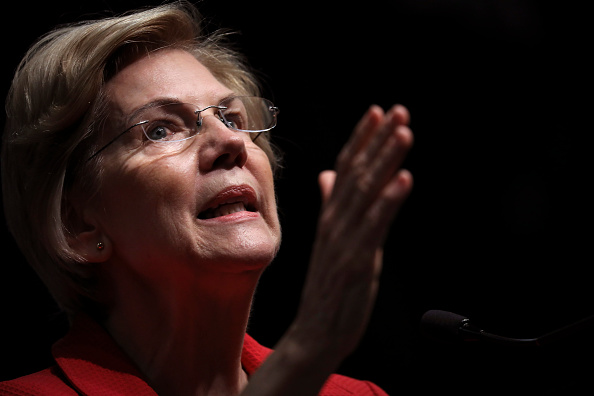Big corporations that currently escape federal taxes are the target of a new campaign proposal from Sen. Elizabeth Warren (D-MA).
Her “real corporate profit tax” plan is part of an emerging strategy to separate herself from the herd of Democrats seeking the presidency. She characterizes it as a matter of fairness.
“Everybody profits from being part of this country and everybody ought to make a contribution,” Warren said Thursday on MSNBC. “Little sized businesses do it, medium sized businesses do it, families do it, we want the big corporations to do it, too.”
In an analysis of the proposal, VOX notes that “many corporations with little to no taxable income nonetheless report significant profits on the earnings statements they send to investors. They have one set of books they show the IRS and another that they show to Wall Street.”
This is not accounting fraud, VOX says — “it’s simply that the corporate tax code is complicated and companies avail themselves of any number of loopholes, deductions, and other creative tactics to minimize their tax bills.”
Warren wants to close those loopholes.
NBC News cites a study released Thursday by the Institute for Taxation of Economic Policy, which it characterizes as “a left-leaning think tank.” It found that “the number of publicly held corporations that pay no federal taxes more than doubled last year to 60, thanks in part to the $1.9 trillion tax cut President Donald Trump signed into law.”
Warren sees Amazon as a prime example, since it reported more than $11 billion in income last year, and paid zero federal taxes.
“Under Warren’s plan,” NBC says, “companies would have to pay a 7 percent tax on profits over $100 million that would stack on top of their other federal taxes. In Amazon’s case, Warren estimated her tax would have raised its total bill to $698 million.”
Currently, businesses add up their taxable income and pay the standard 21 percent corporate income tax. But as Amazon shows, this can result in no actual taxes going to the government.
“Warren wants to leave that system in place for any company’s first $100 million in profits reported to investors,” VOX says. But companies with even higher profits — which VOX puts at “about 1200 companies” — the 7 percent system kicks in for every additional dollar.



